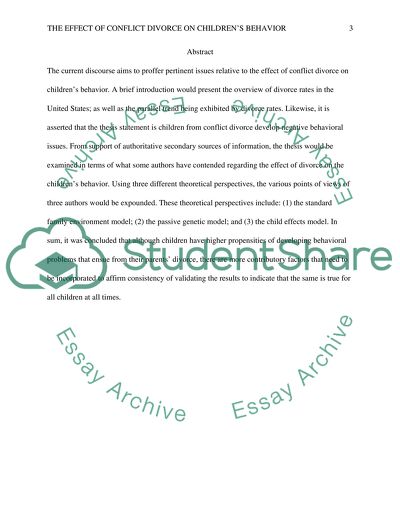Cite this document
(“The Effect of Conflict Divorce on Childrens Behavior Research Paper”, n.d.)
Retrieved from https://studentshare.org/psychology/1461891-children-from-conflict-divorce-develop-negative
Retrieved from https://studentshare.org/psychology/1461891-children-from-conflict-divorce-develop-negative
(The Effect of Conflict Divorce on Childrens Behavior Research Paper)
https://studentshare.org/psychology/1461891-children-from-conflict-divorce-develop-negative.
https://studentshare.org/psychology/1461891-children-from-conflict-divorce-develop-negative.
“The Effect of Conflict Divorce on Childrens Behavior Research Paper”, n.d. https://studentshare.org/psychology/1461891-children-from-conflict-divorce-develop-negative.


